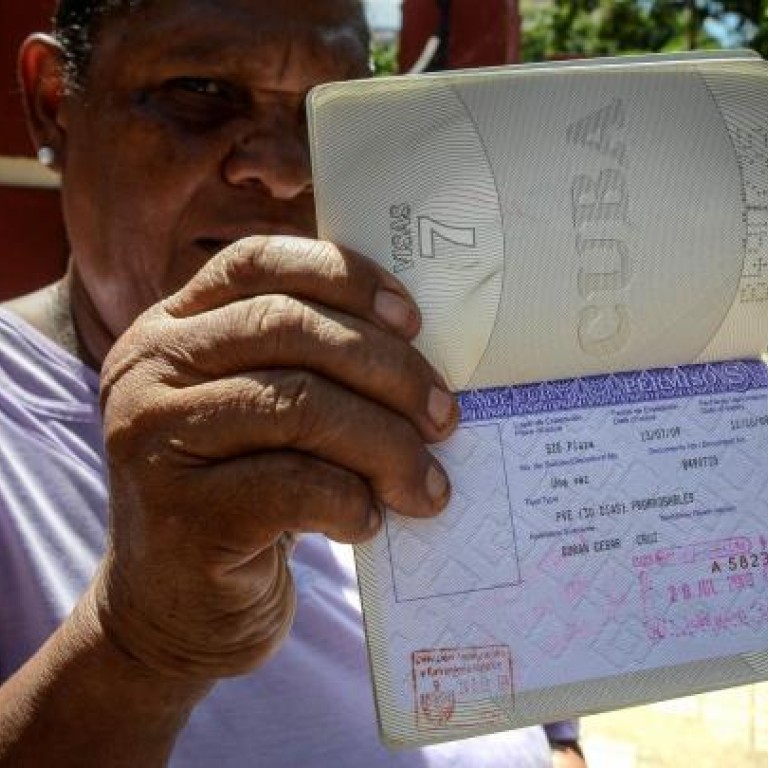
Cuba drops exit permit requirement
Citizens can travel more freely and for longer, but experts warn restrictions will still apply
The Cuban government's bombshell decision to drop the widely hated exit permits required for citizens travelling abroad has unleashed "euphoria" on the island as well as concerns abroad over a possible mass exodus.
A decree published this week made it clear that the communist government would continue to decide who could leave the island, as it has since January 9, 1959, and noted any Cuban could be kept from travelling "when the proper authorities so decide".
"But there is an incredible euphoria here because what one million or more people here really want is to leave" for good or just to visit relatives or friends abroad, dissident economist Oscar Espinosa Chepe said from Havana.
US State Department spokesman William Ostick said Washington leaders welcomed the changes because they favoured human rights, but warned Cubans not to "risk their lives" crossing the Straits of Florida.
Havana blogger Yoani Sanchez, who has been denied exit permits 20 times, wrote on Twitter that "the devil is in the details of the new migration law" and called the decree - a situation where change is more apparent than real.
The new rules appear likely to allow more average Cubans - those without political or other issues pending with the government - to travel abroad more easily, stay out longer and return with fewer complications, costs and paperwork.
They also may help ease some of the social and financial pressures ballooning inside Cuba after President Raul Castro's decisions to reform the economy by laying off nearly one million state employees and cutting subsidies to the food, health and education sectors.
More than one million Cubans now live abroad, mostly in the United States, and about 7,400 islanders without visas have arrived in the US so far this year. All Cubans who step on US soil can stay permanently.
From January, Cubans will no longer need exit permits, which cost US$150 in a country where the average monthly wage stands at US$20, or letters of invitation from their foreign hosts, which cost US$200 to process.
Supervisors must approve the issuance of passports to government and military officials, professionals, physicians and other medical personnel, top sports figures and others whose work is deemed "vital" to the state.
Passports also can be denied to any Cuban "when it is so determined by the appropriate authorities for other reasons of public interest", the decree added, or when "reasons of defence and national security suggest it".
"If that's the way it is, then I have to believe that the government will be as arbitrary as always," said Wilfredo Vallin, a Havana lawyer who heads the nongovernmental Cuban Judicial Association.
The decree also abolishes the re-entry permit required for Cubans who live abroad and wish to visit the island, and extends the time they can visit from one month to at least three months.
But those who "organise, encourage or participate in hostile actions against the political, economic and social basis of the state" will be blocked.
